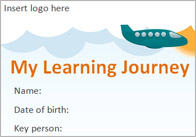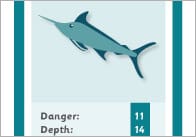Five Ways to Get Your Pupils Interested In Science

Is it a well-known fact that we learn more effectively when we’re intrinsically motivated to learn. And this applies even more so to children who are naturally curious from a young age about the world around them. So it’s important that as teachers, we tap into this when conducting our lessons. If the kids aren’t interested, they won’t retain the information you give them.
Science is an incredibly intriguing subject. Not only does it allow us to explain and understand the world around us, but it also provides us with the tools to improve and predict the future.
So therefore, it is vital that we get our pupils involved and thinking about science in their early years, instilling them with a passion for this broad subject, so that they can go on to understand and help progress scientific research later on in life.
So how do you as a teacher go about initiating this passion for science within your pupils? Well, there are of course many different ways, and this article will be identifying five of the most successful methods, as recommended by teachers across the globe.
Technological Science
In society today, we are constantly surrounded by products that come as a result of scientific research. iPhones, interactive whiteboards, computers – are just some of the tools we use on a daily basis to benefit our personal and academic lives. So why not use them in your lessons?
The constructivist approach in Psychology states that children are “intellectual explorers” who build their understanding of the world through their interactions with it. By incorporating this theory into your science lessons, you can encourage children to look at the technology they use daily by instructing them to think about how it works and why. Ground your lessons to a real-life context, for this will keep your children engaged for longer because they will feel that the content is more relevant to them.
Whizz, Bang, POP
Rutherford stated that “hands-on and learning by experience are powerful ideas … we know that engaging students actively and thoughtfully in their studies pays off in better learning.” Thus, it is important that we allow children to engage in this form of learning at some point during class. And, experiments pose a great opportunity to do this in science; offering an interactive and impressive activity for children to partake in.
Of course, be mindful of the age of your pupils – younger ones will need much more supervision and some experiments may require corrosive or harmful ingredients which would not be suitable for them to handle. In such cases, experiments such as the baking soda and vinegar volcano experiment can be a great choice.
Take it Outside
Following on from the idea of interactive learning, your schools surroundings can also be a useful tool when attempting to plan an interesting science lesson. By a change in environment you can recapture your class’s attention and show them that science can be seen in every part of their environment, not just inside classroom textbooks.
One way to use your schools’ outdoor surroundings effectively is to introduce them to the importance of animal habitat conservation. Instruct your children to identity and record the types of habitat they can see in the surrounding area, encouraging them to think about how these habitats sustain the flora and fauna that reside there (e.g. through photosynthesis). This will draw their attention to the biological matter in your schools environment, prompting scientific thought and discussion.
Field Trips
There are a great many science centres out there that are fantastic 0 for kids, in fact – they’re built solely for the purpose of getting pupils interested in science. So take your class along to one for some interactive science fun!
Places such as @Bristol provide an interactive environment for children to learn about science through creative and interactive exhibitions. You can even literally step inside a womb to gain understanding of how embryos grow! A great day out for a class of any primary age group.
Science is a greatly intriguing subject, and one that can be useful to children regardless of whether they enter a profession related to science or not. For with science becoming so integrated into the general workings of society, it’s important that all up-coming generations are fully clued in to its importance and impact.
Whilst it is unlikely that all aspects of science will spark your class’s interest, you can still keep their enthusiasm for the subject high by seeking out motivational science tips and varying your lessons between the fundamental and more quirky aspects of science. Keep your pupils involved and keep them continuously thinking.
If you are a teacher with any thoughts on how you can make science lessons exciting, please share your tips in comments below.
Jessie is a freelance writer and an active private tutor who specialises in the subject fields of English, Maths and Chinese. She strives to make every lesson fun and interactive for her pupils.
Popular Teaching Resources
Stay Up To Date
Sign up for our newsletter and we’ll let you know when we create new early years resources.





